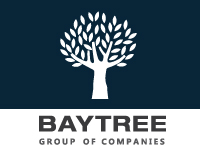CA
ON
캐나다 공인 컨설턴트 - 한인크레딧 컨설팅
전화: 416-897-8438
1 High Meadow Place, Unit 2 North York, ON

준비된 바이어 그룹 , BAYTREE 이너써클
전화: 416-226-5999
7030 Woodbine Ave. Suite 103 Toronto, ON

조준상 (로열르페이지 한인부동산 대표)
전화: 416-449-7600
1993 Leslie St. Toronto, ON

변호사 정찬수 법률사무소
전화: +82 2-536-1144
서울특별시 서초구 서초동 Toronto, ON
1.jfif)
최고의 POS시스템 - 스마트 디지탈 POS
전화: 416-909-7070
4065 CHESSWOOD DR. NORTH YORK Toronto, ON
0.jfif)
부동산캐나다 (Korean Real Estate Post)
전화: 416-449-5552
1995 Leslie Street Toronto, ON
.jfif)
1004열쇠
전화: 416-895-1004
4 Blakeley Rd. Toronto, ON

토론토 기쁨이 충만한 교회
전화: 416-663-9191
1100 Petrolia Rd Toronto, ON

한인 시니어 탁구협회
전화: 647-209-8933
1100 Petrolia Rd Toronto, ON
4.jpg)
골프 싱글로 가는길
전화: 647-291-2020
115 York Blvd Richmond Hill Toronto, ON

싸인건설
전화: 416-909-7070
4065 Chesswood Dr. North York, ON
0.jfif)
고려 오창우 한의원
전화: 416-226-2624
77 Finch Ave W #302, North York Toronto, ON

It would be a place where all the visitors including me share the life stories and experiences through their activities,especially on life as a immigrant.
Why don't you visit my personal blog:
www.lifemeansgo.blogspot.com
Many thanks.
블로그 ( 오늘 방문자 수: 14 전체: 267,577 )
토론토시 리크리에이션 센터 사용료 21% 인상
lakepurity
2008-01-08
City plans big fee hikes
STEVE RUSSELL/TORONTO STAR
Beginner skating lessons, $24 for 8 lessons; up to about $45 by 2014
Proposal to raise ice costs sparks outrage
Shock and disbelief was the reaction of minor hockey organizers when told the City of Toronto proposes to increase ice costs by 15 per cent and then another 10 per cent each year until 2015.
Staff blueprint seeks 21% increase this year for recreation programs; 10% a year after that
토론토시에서 운영하는 각종 리크리에이션 시설을 이용하는 시민들은 금년에 21%가 인상된 사용료를 지불해야 사용이 가능하게 된다. 다시 내년부터는 10%가 6년동안 계속 인상하게 된다.
토론토시는 매년 사용료로 44백만 달러를 거둬들이고 있으며, 2014년까지는 77백만 달러를 거둬들이게 된다.
Jan 08, 2008 04:30 AM
DONOVAN VINCENT
CITY HALL BUREAU
People who use city-run recreational programs - from swimming lessons to ice time to mom-and-tot sessions – would face an average 21 per cent jump in fees this year and 10 per cent for each of the following six years under a plan proposed by Toronto's recreation department.
In the face of calls for belt-tightening by opposition councillors and Toronto's ongoing budget difficulties, the proposal - dubbed "revolutionary" by department general manager Brenda Librecz – should see wide support.
The plan envisions the city increasing its "cost recovery" (also known as "user pay") percentage for recreational programs from 30 per cent to 50 per cent by 2014 (the rest is covered mostly by property taxes). That ratio would bring Toronto more in line with municipalities in the 905 region, such as Mississauga and Burlington, which are now in the 55-66 per cent range.
The city collects about $44 million a year in user fees; that would jump to $70 million by 2014 under the plan.
But the proposal also calls for reinvesting some of that extra money - $6.3 million by 2011 – in an ongoing program called the Welcome Policy, which gives low-income people access to the same recreational opportunities for free.
Welcome Policy users - about 15,000 people currently – are subsidized by an average of $285 a year for children and youth, $190 a year for adults. Families qualify based on a federally calculated income test. Recreation staff at city hall want to see 29,000 people on the rolls by 2014.
The proposal also calls for new free "skills-based" programs to be offered in conjunction with Toronto's school boards. A "youth co-operative leadership" program for Grade 8 and 9 students, a swimming program for Grade 4, and a Learn to Skate program for Grade 5s would be offered free across the city.
Programs already offered such as leisure swimming, skating, summer playground programs and drop-in programs like mom and tot swim sessions, gymnastics, reading and homework groups would remain free.
In fact, the plan calls for expanding drop-in programs across the city; currently, they're available only in certain areas.
The new proposal was unveiled at city hall yesterday by Librecz and City Councillor Joe Mihevc, who also chairs the community development and recreation committee.
The proposal aims to put the parks, forestry and recreation department on more solid financial footing, given that it faces a budget shortfall every year, with last year's at $3 million.
It also comes after the city approved a new land transfer tax and vehicle registration fee in the fall.
Public meetings will be held the week of Jan. 21 to discuss the proposal before it goes to the city's community development committee for debate next month.
Approval would be needed from city council after that.
Librecz called the report revolutionary because it calls for new money to be put back into recreation programs needed by lower income residents.
"We want to increase participation and respond equitably to local community needs," she told reporters.
Currently the city has about 21 so-called "priority centres" intended to offer free recreation to high-needs communities.
But the department, having found that many less needy people are using these free programs, suggests in the report that the centres be converted to a "needs-based system" over three years.
Mihevc lauded the plan.
"We're not asking for more money from property taxes, but investing new money from user fees back into recreation," he told reporters.
Councillor Karen Stintz, a right-winger at city hall, said she supports plans to expand the Welcome Policy.
Stintz supports increased user fees, saying "50 per cent is a good ratio, but they should get there faster than seven years."
But she doesn't support the free instructional programs. She said non-profit groups such as the Future Aces already do a good job of providing youth leadership programs.
The city's 52,000 recreational programs are offered in 350 locations, including community centres, stand-alone arenas and schools.
Leaders in hockey, a sport which even middle-income families often find prohibitively expensive, were particularly upset about the proposed increase in ice time fees, which would rise 15 per cent this year.
"Why doesn't the City of Toronto just run kids' sport out of town?" said an angry Greater Toronto Hockey League president John Gardner.
"There are kids out there now who can't play hockey because of the costs and that is morally criminal. This will drive kids more out of the sport."
Regular community centre user Marlena Roy worries that fee hikes will make it difficult for some families.
"I use this centre extensively," she said yesterday after dropping off her 9-year-old stepson, Tyson Tan, for swimming lessons and then a woodworking class at Matty Eckler community recreation centre on Gerrard St. E.
"My 13-month-old son has already been in three swimming classes. "It does add up. You might have to think twice.''
Roy wishes for a return to the days of free programming across the board for all children, as it was when she was growing up in the 1970s.